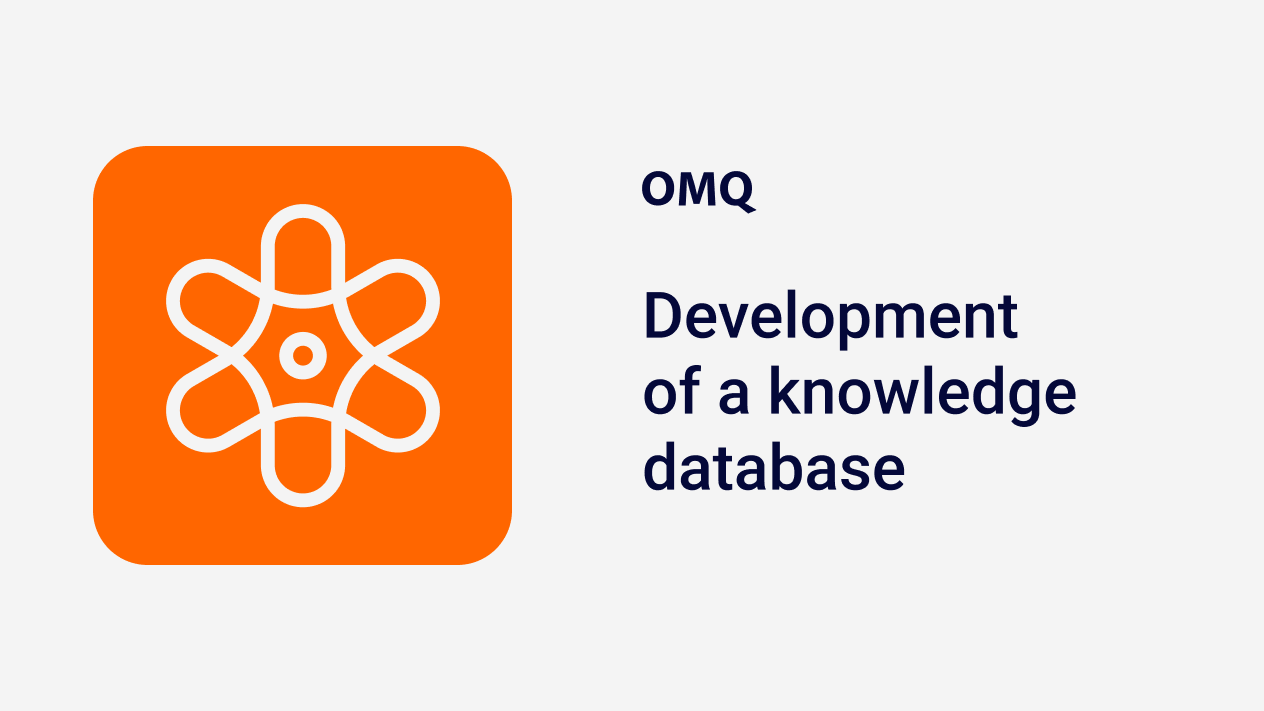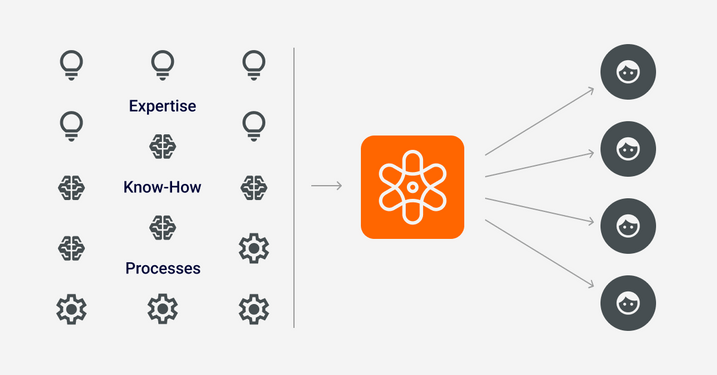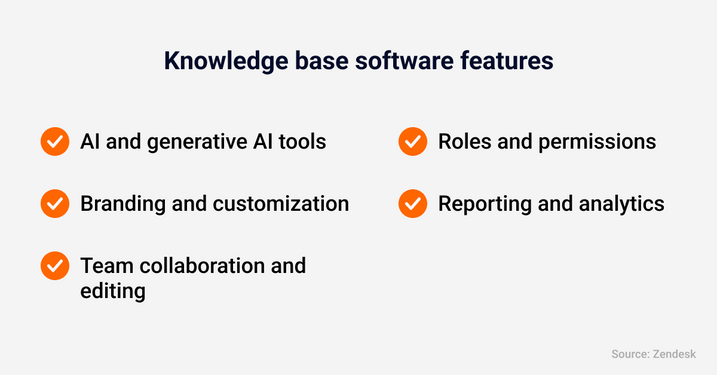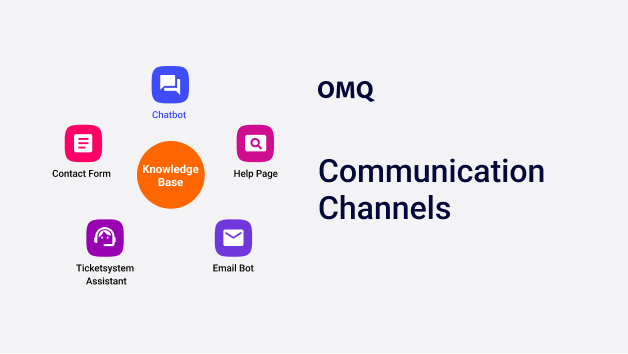Customer Service
Building a Knowledge Base: What to Consider?
Discover how building a knowledge base can transform your business.

Building a knowledge base is a crucial step for companies aiming to optimize their internal processes and improve access to information. A well-organized knowledge base can not only enhance efficiency but also improve the quality of work.
In this article, you will learn everything about building a knowledge base and how modern AI tools, like OMQ, can support you in this endeavor.
What is a Knowledge Base?
A knowledge base is a structured system designed to provide an organization’s accumulated knowledge in a central, easily accessible form. It serves as a comprehensive resource for information, enabling users to efficiently find answers to questions and solve problems.

What’s inside a knowledge base.
Key Features of a Knowledge Base
-
Centralized Information: All relevant data and information are collected and organized in one place, making access easier for all employees.
-
Searchability: An effective knowledge base has powerful search functions that allow users to quickly find the information they need.
-
Timeliness: To ensure that the information is relevant and correct, the knowledge base is regularly updated and maintained.
-
Versatility of Content: Besides texts, videos, diagrams, and other media formats can be integrated to support different learning styles.
Benefits of a Knowledge Base
-
Efficiency Increase: Quick access to information enables employees to complete their tasks more efficiently and save time.
-
Quality Improvement: Providing verified and precise information helps improve the quality of work.
-
Support for Self-Service Solutions: Customers can independently find answers to frequently asked questions through self-service portals, reducing pressure on customer service.
Advantages of Building a Knowledge Base
Building a knowledge base offers numerous advantages. It saves time by reducing the effort required for information searches. It also improves work quality through verified and precise information. Additionally, it facilitates onboarding new employees and provides customers with self-service options, relieving service personnel.
Steps to Build an Effective Knowledge Base
- Conduct Needs Analysis: Identify frequently asked questions and essential knowledge through surveys and support ticket analyses.
- Structure the Database: Organize content so that it is easy to navigate and searchable.
- Use Media Mix: Utilize texts, videos, and diagrams to cater to different learning styles.
- Establish Writing Guidelines: Ensure consistency and clarity in communication.
AI Tools for Building Knowledge Bases
Modern AI tools like OMQ play a crucial role in building knowledge bases. These tools use artificial intelligence to organize information more efficiently and make it accessible. For instance, OMQ can automatically generate answers to frequently asked questions or suggest relevant content.

Functions of the knowledge software.
Tips for Successful Implementation
- Identify Critical Knowledge Content: Determine the need for knowledge in various departments.
- Collect Internal Knowledge: Regularly update existing internal knowledge.
- Ensure User-Friendliness: Ensure that navigation and search functions are easy to use.
- Choose Intranet or Cloud: Depending on accessibility needs, decide between an intranet or cloud solution.
Continuous Improvement of the Knowledge Base
A knowledge base must be regularly updated to remain relevant. Use analytics to identify content gaps and optimize your database offering. Encourage collaboration among colleagues to enrich the community of your knowledge base.
Conclusion
Building an effective knowledge base requires careful planning and continuous maintenance. However, with modern technologies like AI, companies can achieve significant efficiency gains and revolutionize their information management. Seize this opportunity to future-proof your business!


